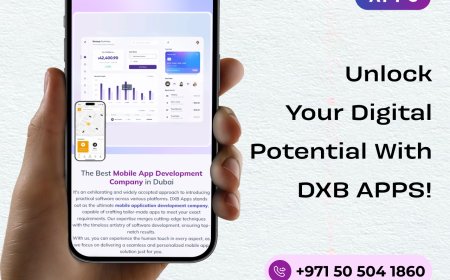How to Monetize Your Betting Platform Without Driving Users Away
At the end of the day, users will stick with platforms that respect their time, money, and trust.

Monetization is the lifeline of any betting platform. After all, no matter how great your user experience is or how clean your design looks, your platform needs to generate revenue to stay afloat. But heres the real challenge: how do you make money without annoying or losing your users?
Many betting operators fall into the trap of over-monetizingusing aggressive ads, complicated fees, or sneaky practices that frustrate users and eventually drive them away. The key to sustainable monetization is balance. If you can offer value while also earning, everyone wins.
Whether you're working with top-tier sports betting software developers or building your platform from scratch, this guide walks you through practical, user-friendly ways to monetize your betting platform without sacrificing trust or experience.
1.Offer Freemium Features, Not Just Free Bets
Most platforms give out free bets to attract new users, and that worksfor a while. But giving away too much without building a revenue model behind it isnt sustainable.
Instead, try a freemium model: offer basic betting features for free but charge for advanced analytics, premium odds, or expert predictions. This works great for more serious bettors who are willing to pay a small fee for better insights.
Youre not taking anything away from casual users, but you're providing more for those who want morewithout being pushy.
2.Build a VIP or Loyalty Program
Loyalty matters. The more someone uses your platform, the more likely they are to stick aroundand spend. A smart loyalty or VIP program rewards repeat users without being invasive.
Examples include:
-
Cashbacks on losses
-
Free entries into exclusive contests
-
Early access to high-stakes betting events
-
Tiered rewards (e.g., bronze, silver, gold levels)
Many sports betting software developers now include these loyalty features out-of-the-box, making them easier to integrate without coding from scratch.
3.Use In-Play Microtransactions Strategically
In-play betting (live betting during a match) is hugely popular, especially in sports like football, tennis, and basketball. It offers a golden opportunity for subtle monetization.
Instead of charging for basic bets, you could offer paid "add-ons" like:
-
Real-time stats upgrades
-
Enhanced odds packages
-
Insider betting tips during the game
When done right, users appreciate these features and dont mind spending a small amount to improve their odds or experience.
4.Offer Personalized Subscriptions
A growing number of platforms are introducing subscription models, especially around tools like bet-building, prediction models, or exclusive tips.
Heres a smart move: offer a free version with basic info and a paid version with:
-
Deeper analytics
-
Match simulations
-
Trend tracking
This works well if your Sports Betting API integration pulls in real-time stats or AI-generated predictions. Serious users often see this as an investment, not a cost.
5.Keep Ads Minimal and Contextual
Lets talk about ads. Yes, they bring in revenuebut nothing kills the vibe faster than intrusive pop-ups or autoplay videos during a bet.
Instead:
-
Keep ads relevant to your users, like sportsbook bonuses or fantasy leagues.
-
Place them in between screens (e.g., post-bet confirmation) rather than interrupting betting.
-
Use native ad placements that blend with your platforms design.
Modern sports betting software developers allow seamless ad integration, so use this feature to balance revenue with experience.
6.Partner with Affiliate Brands
Affiliate marketing is another clever, non-invasive way to monetize. You can recommend related services such as:
-
Fantasy sports platforms
-
Sports merchandise stores
-
Casino or poker apps
Each time a user signs up or purchases through your referral, you earn a commission. Just make sure youre recommending relevant, trustworthy services, or you risk losing user trust.
7.Monetize Your Data Responsibly
Betting platforms generate tons of dataon betting behavior, match interest, odds fluctuation, etc. With proper anonymization, this data can be monetized by sharing it with:
-
Sports analytics companies
-
Media outlets
-
Betting odds aggregators
That said, transparency is everything. Clearly state in your privacy policy what you share, and always give users control over their data. Ethical data use builds long-term trust.
8.Add Social Features with Micro-Monetization
Adding social layerslike chatrooms, private leagues, or challengesmakes your platform sticky. And where theres engagement, theres monetization potential.
Here are some ideas:
-
Paid entries into private betting pools
-
Tipping or gifting systems between users
-
Buying brag-worthy badges, stickers, or profile enhancements
These small micro-transactions feel like fun, not a hard sell.
9.White-Label Options for Partners
If your platform is built wellespecially with solid sports betting API integrationyou might offer white-label versions of your software to niche markets or smaller sportsbooks.
This turns your platform into a product, generating income while expanding your ecosystem.
Even if you started as a consumer-facing brand, many sports betting software developers can help you pivot into a B2B model with white-label licensing options.
10.Run Tournaments and Leaderboards with Entry Fees
Adding some competition can spice up your community. Hosting weekly or monthly tournaments with small entry fees can be both fun and profitable.
For example:
-
$5 entry fee
-
70% goes to the prize pool
-
30% kept by the platform
This adds a gaming layer to your sportsbook without compromising the betting aspect. Players love a chance to climb the ranksand will pay for it.
Final Thoughts: Always Prioritize User Experience
At the end of the day, users will stick with platforms that respect their time, money, and trust. If your monetization tactics feel pushy or greedy, theyll leave. But if you deliver value, personalization, and fun in exchange for paymenteven micro-paymentstheyll likely come back for more.
Heres a quick checklist before rolling out a new monetization idea:
-
? Does it offer real value to the user?
-
? Is it optional, not forced?
-
? Is it easy to understand?
-
? Does it keep the user experience clean?
Working with the right sports betting software developers can help implement these strategies smoothly and scalably. And if your platform already has Sports Betting API integration, youve got a powerful foundation for offering real-time, premium experiences that users may gladly pay for.





























